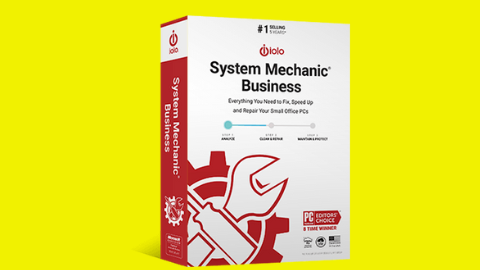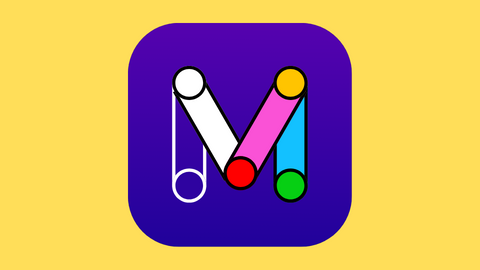In this post, you will learn how AI can help enhance mobile apps.
Artificial Intelligence (AI) is one of the technologies being actively developed and widely integrated into various types of software solutions. AI’s impressive capabilities can help explain the hype surrounding it.
Although a new wave of user interest in this technology began with the introduction of ChatGPT in November 2022, it is worth acknowledging that the history of AI-powered tools and features dates back several years.
Today, we can observe the growing number of AI startups and see the world’s tech giants, such as Meta and Microsoft, competing for leadership in this market. All this can be viewed as a potent booster for innovations and AI tech progress.
There are numerous possibilities for integrating artificial intelligence and machine learning tools into mobile applications designed for various industries and target audiences. You can analyze the benefits of these technologies by examining the examples of Cogniteq apps and products delivered by other companies.
Table of Contents
Best Cybersecurity Business Deals
How AI Can Help To Enhance Mobile Apps
Let’s look at the AI use cases in mobile app development.
Virtual assistants
Speech-to-text and text-to-speech tools, as well as speech and voice recognition tools, can become real game-changers for apps of various types. They can allow users to interact with your application without clicking or tapping, reading texts, or performing different tasks independently.
This functionality can help save a significant amount of time and enable various processes to be carried out in parallel. For example, a user can get the required information while driving or cooking without a smartphone.
Moreover, such features can be externally helpful for people with vision impairments or other disabilities.
Already today, some startups are working on developing AI-powered e-learning apps for students with disabilities. Thanks to the help of virtual assistants, they can receive and learn vast volumes of information that previously were unavailable to them.
Detection of objects
Object detection is another area of AI technology application used in developing mobile solutions. AI and image recognition technologies can become a perfect duo for any app if its functionality is somehow related to visuals. Modern mobile apps can identify various items, locations, and people based on single elements.
Such features can be helpful for applications in numerous industries, including healthcare. For example, photos or scans of potential anomalies can be uploaded to the app, and AI algorithms can process these images to provide a possible diagnosis.
As a result, making the correct diagnosis is not only streamlined but also enhanced, as AI can demonstrate a very high level of accuracy.
It is also possible to rely on such features in the insurance industry for claim processing and underwriting.
READ ALSO: AI for Threat Detection: How Businesses Can Stay Secure
Predictive analytics
Predictive analytics is a commonly applied feature for the IoT and AI-powered systems developed for the manufacturing industry. However, today, the scope of this functionality can be significantly more comprehensive.
Such tools can be integrated into mobile apps built for finance, retail, insurance, or healthcare industries to get valuable insights into user behavior.
This functionality is designed to analyze customer behavior, identify general trends, make predictions about people’s choices and changes in preferences, and subsequently adjust goods and services.
AI can revolutionize our traditional approaches to analytics in a profound way. AI algorithms can work with historical data and provide predictions with excellent precision.
Mobile apps enriched with such features can become a significant competitive advantage for businesses today, as they can make more informed and feasible decisions based on the received predictions.
Personalization
Today, one of the key business trends is the hyper-personalization of customer experiences. This trend has already significantly influenced the development of mobile solutions.
Thanks to AI, a mobile app can continuously analyze users’ interactions with the application, including all their choices, and detect their interests and preferences. Based on the results of this analysis, your app can offer personalized experiences for each customer.
Such features can be especially relevant to apps provided by retail companies and businesses that sell their services. AI can create personalized lists of recommendations that drive sales.
READ ALSO: A Guide for Healthcare Businesses on Using New Technology
How AI Can Help To Enhance Mobile Apps: Frequently Asked Questions
Artificial intelligence (AI) is revolutionizing the mobile app landscape. By integrating AI features, developers can create more innovative, personalized, and engaging mobile app experiences.
Here are FAQs to shed light on how AI is transforming mobile apps:
What are some key benefits of using AI in mobile apps?
AI offers a range of advantages for mobile apps, including:
- Enhanced User Experience (UX): AI can personalize app interfaces and content based on user preferences, behavior, and past interactions. This leads to a more intuitive and enjoyable experience for each user.
- Improved Functionality: AI-powered features, such as voice assistants, chatbots, and image recognition, can streamline tasks, enhance accessibility, and provide users with greater control over the app.
- Predictive Analytics: AI can analyze user data to predict behavior and needs. This allows developers to anticipate user actions and suggest relevant features, content, or recommendations within the app.
- Enhanced Security: AI can detect and prevent fraudulent activity within the app, protecting users and their data.
What are some examples of AI being used in mobile apps today?
Many popular mobile apps already leverage AI in various ways. Here are a few examples:
- Social media platforms: AI personalizes news feeds, recommends connections, and powers image recognition for content moderation and tagging.
- Streaming services: AI curates personalized recommendations for movies, music, or shows based on user viewing habits.
- E-commerce apps: AI personalizes product recommendations, analyzes user searches to improve search results, and can even power chatbots for customer service.
- Finance apps: AI can be used for fraud detection, personalized financial advice, and automated budgeting tools.
READ ALSO: Top Cybersecurity Trends Every Web Developer Should Expect
How can I get started with integrating AI into my mobile app?
There are several ways to incorporate AI into your app, depending on your needs and resources:
- Cloud-based AI services: Several cloud platforms offer pre-built AI services, such as image recognition, natural language processing, and machine learning tools, that can be easily integrated into your app.
- Third-party SDKs (Software Development Kits): Companies offer pre-built SDKs that provide specific AI functionalities for your app, such as chatbots or voice assistants.
- Develop custom AI solutions: For highly specialized needs, consider developing custom AI models tailored to your app’s unique features and user base.
By understanding the benefits and potential applications of AI, developers can create mobile apps that are more user-centric, efficient, and secure.
Instead of the final word: Key benefits of AI-powered features
So, what does AI bring to mobile apps? Among the main advantages, we should note enhanced user experience, automation of certain tasks and processes, and increased efficiency.
With all the new opportunities opened up to businesses and mobile app users thanks to AI, it is unsurprising that the AI market will expand rapidly.
Experts predict its annual growth rate from 2023 to 2030 will be over 37%. Based on this figure, we have every reason to believe that the impact of this technology on all industries will continue to grow in the coming years. It is essential to consider this fact when planning to build a mobile app.
INTERESTING POSTS
- Exploring The Benefits Of AI-Powered At The 2022 Qatar World Cup
- What is Magento? Everything You Need To Know
- Why Is Cybersecurity In Financial Services Important?
- The Intersection of AI and Privacy: Safeguarding Personal Information in the Age of Intelligent Systems
- AI Revolution: Protecting Your Cyber Future
- The Role of Artificial Intelligence in Cybersecurity
- Using Artificial Intelligence To Keep Your Financial Data Safe [Infographics]
About the Author:
John Raymond is a cybersecurity content writer, with over 5 years of experience in the technology industry. He is passionate about staying up-to-date with the latest trends and developments in the field of cybersecurity, and is an avid researcher and writer. He has written numerous articles on topics of cybersecurity, privacy, and digital security, and is committed to providing valuable and helpful information to the public.


























